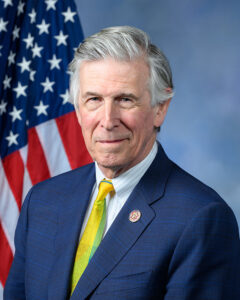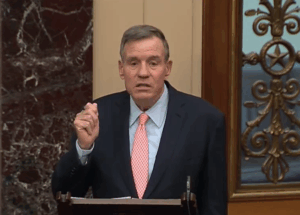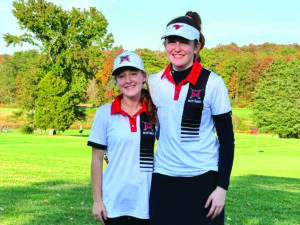A long and hard-fought City Council race in the City of Falls Church culminates next Tuesday, Nov. 7, when three seats on the seven–member Council will be filled by three of the four candidates with the most votes. Turnout among those voting early has been somewhat less than some have expected but not for any lack of important issues and campaigns being involved.
There are four candidates but essentially two sides represented by the contenders. One side, with three candidates, is led by incumbent Vice Mayor Letty Hardi, seeking a third four-year term, and includes first time Council candidates Tim Stevens and Justine Underhill, all of whom were endorsed by the regional Sierra Club chapter. On the other side is Erin Flynn, a relative newcomer to the City who has been critical of recent actions by the Council, in particular to its 5-2 vote to modify zoning in the City’s transitional zones.
It has developed into a face-off between Hardi, who has spearheaded the past decades’ extraordinary achievements of a new $120 million high school, renovated City Hall and Library and substantial improvements in sidewalks and residential neighborhoods while lowering the real estate tax rate by 13 cents, and Flynn, who took the losing side on the zoning change issue.
Proponents of the change, including Hardi, prevailed in a final 5-2 vote by the Council who saw the change as an opportunity to respond to the regional housing shortage crisis with a move that will allow more affordable housing types in the City, while opponents in what was well over a year of forums and debates, argued against the potential of collateral issues like traffic and parking.

Hardi’s side includes the two other candidates that she has chosen to align with in next week’s election as fellow Sierra Club endorsees, Planning Commission chair Srevens and Housing Commission activist Underhill.
On this eve of the election, Hardi, Stevens and Underhill has been the beneficiary of a letter of support from veteran Falls Church City Councilman Phil Duncan, who declined to run for his spot this year due to his having received a massive lung transplant earlier this year. Duncan has made a spectacular recovery and been active on the Council despite the transplant, and that includes chairing the Council’s Economic Development committee.
While Hardi, Stevens and Underhill enjoyed the letter of endorsement from Duncan, published elsewhere in this edition, and also the endorsement of the News-Press (see Editorial, Page 6), Flynn secured a letter of support from Council member David Snyder, who was one of the two “no” votes on the zoning change. That letter is also published elsewhere in this edition.
In another issue related to the campaigns, the City’s Citizens for a Better City (CBC) civic group announced what it considered the success of its “Integrity Pledge” efforts. After a local election two years ago saw a heavy influx of financial support from outside the City, the CBC’s Hal Lippman launched an effort to have all the candidates this time commit to an “Integrity Pledge” that all seven local candidates (four for City Council and three for School Board) agreed to.
Lippman announced this week following the final filing deadline for candidate fundraising disclosures this:
“Using campaign fundraising information compiled and posted on October 31, 2023 by the nonprofit Virginia Public Access Project (www.VPAP.org), the CBC Candidate Integrity Pledge Monitoring Committee has concluded that all seven candidates running for the City Council (four) and School Board (three) have complied with the Pledge’s letter and intent.
“CBC developed and all current candidates signed the Pledge, which was a response to the contentious 2021 campaign cycle where for the first time in our Little City’s history a troubling infusion of comparatively large sums of outside money came into some candidates’ campaigns. As of October 31, there has been no evidence whatsoever that this situation regarding outside funding has recurred.
“Average campaign funds received to date for current City Council candidates amounts to $8,750; as compared to $8,223 for their counterparts in 2021. For the School Board candidates, average funds received to date are $1,278; as compared to $11,860 for their 2021 counterparts.”












